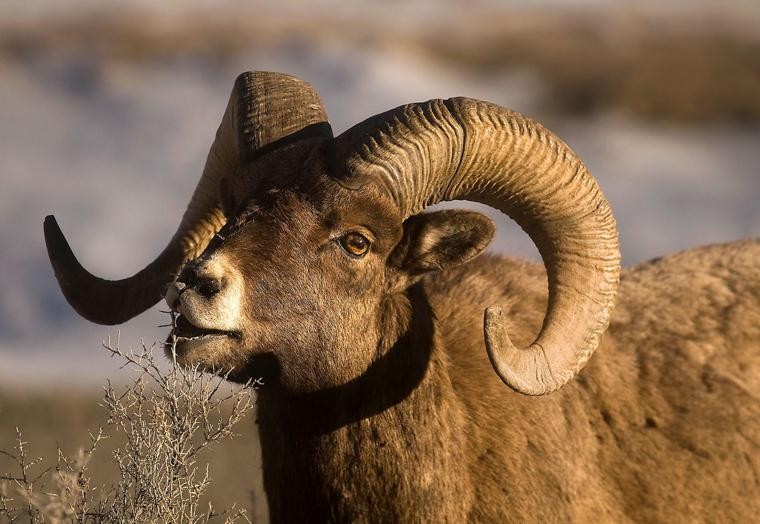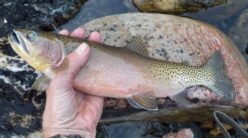Federal officials have agreed to settle a lawsuit with environmental groups that prevents domestic sheep from grazing in Eastern Idaho until a scientific study addressing how they might threaten bighorn sheep with deadly diseases is completed.
The U.S. Forest Service last week agreed with the Western Watersheds Project and WildEarth Guardians to prohibit domestic sheep owned by the University of Idaho from grazing via permits issued to the U.S. Department of Agriculture’s Sheep Experiment Station.
“It’s a significant step forward for bighorn sheep to have these allotments remain unused by domestic sheep until the agency does a thorough environmental analysis,” said Laurie Rule, an attorney for Advocates For The West representing the groups.
Court documents say the lawsuit will be dismissed unless the American Sheep Industry Association, which intervened in the case, files an objection by July 27. Chase Adams, senior policy and information director for the association, said Tuesday the association is consulting with its attorneys.
The lawsuit filed in October challenges the Forest Service’s authorization of the grazing allotments in the Caribou-Targhee National Forest, an area also used by a herd of about 36 South Beaverhead Rocky Mountain bighorns. The federal court in November issued a temporary injunction preventing domestic sheep from being released into the area last fall and winter.
U.S. Forest Service officials did not return a phone message seeking comment on Tuesday. University of Idaho officials had no immediate comment on the lawsuit, said spokesman Brad Gary.
The domesticated sheep have grazed in the area cited by environmentalists for years. The sheep station conducts agricultural research and operates on about 75 square miles in Idaho. It also grazes sheep on federal public land in Idaho and Montana.
That public land includes the Snakey Canyon and Kelley Canyon grazing allotments on the southern end of the Beaverhead Mountains west of Dubois, Idaho, where 2,200 sheep are permitted to graze.
The sheep station has operated for about a century. Environmentalists have filed previous lawsuits over the grazing areas in the region that are in a key east-west wildlife corridor in the Centennial Mountains between Yellowstone National Park and rugged central Idaho lands.
A 392-pound male grizzly bear being tracked by researchers disappeared in September 2012 from sheep station property. Its collar was later found hidden under a rock in a creek. The body of the bear was never found.



